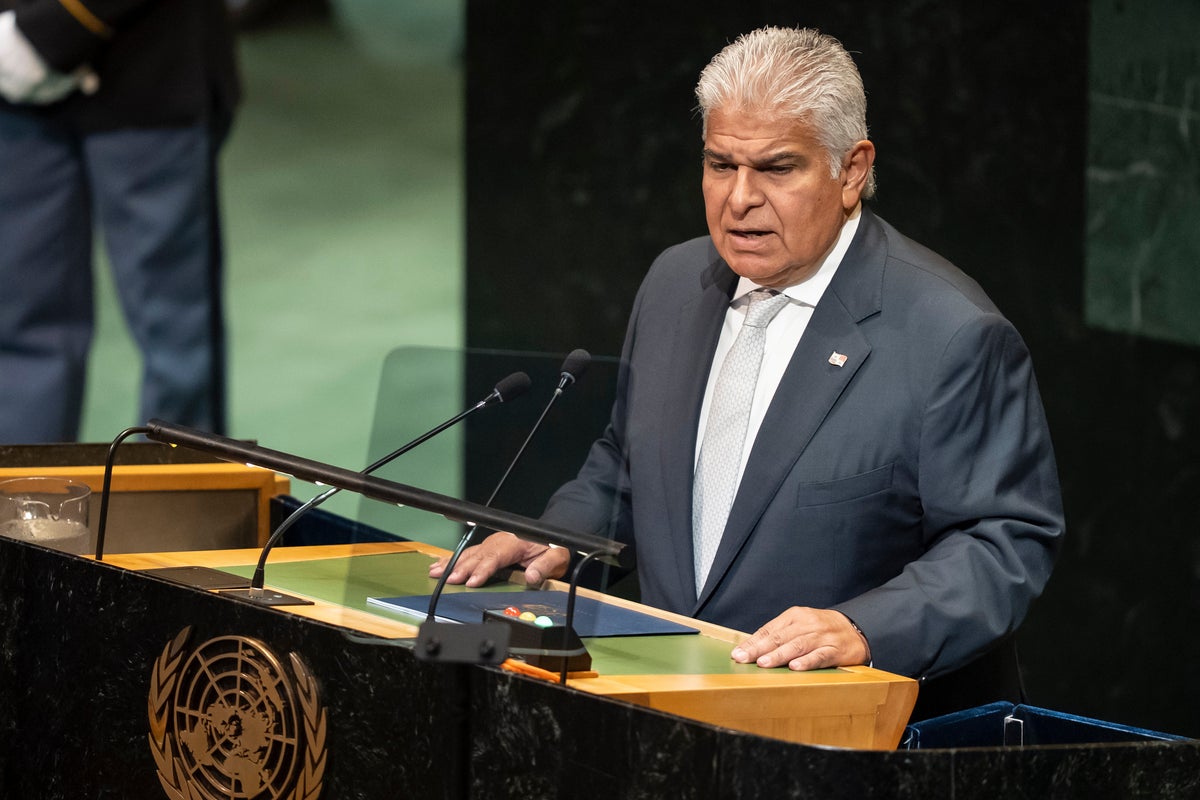
Panama President José Raúl Mulino said Thursday that someone at the U.S. Embassy has been threatening to cancel the visas of Panamanian officials as the Trump administration pressures Panama to limit its ties to China.
Responding to a question at his weekly news conference, Mulino said without offering evidence that an official at the U.S. Embassy is "threatening to take visas,” adding that such actions are ”not coherent with the good relationship I aspire to maintain with the United States.” He did not name the official.
The U.S. Embassy in Panama did not immediately respond to a request for comment. The Trump administration has previously declined to comment on individual visa decisions.
But in September, the U.S. State Department said in a statement that the U.S. was committed to countering China’s influence in Central America and would restrict visas for people who maintained relationships with China’s Communist Party or undermined democracy in the region on behalf of China.
Earlier this week, the Trump administration revoked the visas of six foreigners deemed by U.S. officials to have made derisive comments or made light of the assassination of conservative activist Charlie Kirk last month.
Similar cases have surfaced recently in the region. In April, former Costa Rica President and Nobel Peace Prize winner Oscar Arias said the U.S. had canceled his visa. In July, Vanessa Castro, vice president of Costa Rica’s Congress, said that the U.S. Embassy told her the U.S. had revoked her visa citing alleged contacts with the Chinese Communist Party.
Panama has become especially sensitive to the U.S.-China tensions because of the strategically important Panama Canal.
U.S. Secretary of State Marco Rubio visited Panama in February on his first foreign trip as the top U.S. diplomat and called for Panama to immediately reduce China’s influence over the canal. Panama has strongly denied Chinese influence over canal operations, but has gone along with U.S. pressure for the Hong Kong-based company operating ports on both ends of the canal to sell its concession to a U.S. consortium.
Mulino has said that Panama will maintain the canal’s neutrality.
“They’re free to give and take a visa to anyone they want, but not threatening that if you don’t do something, I’ll take the visa,” Mulino said Thursday. He noted that the underlying issue — the conflict between the U.S. and China — “doesn't involve Panama."
____
Follow AP’s coverage of Latin America and the Caribbean at https://apnews.com/hub/latin-america







